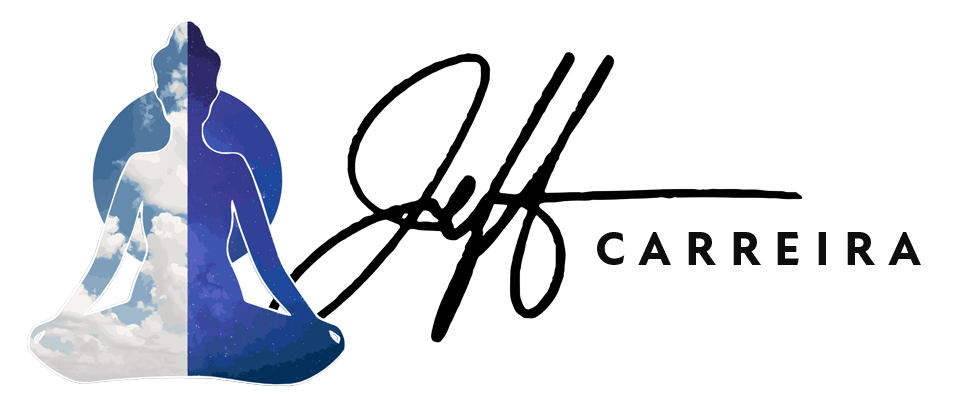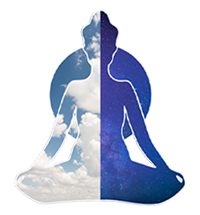
As a meditation practitioner and teacher I have experienced myself and witnessed others experience the miracle of radical liberation countless times. There are many forms of meditation designed for a variety of purposes. The form that I teach is designed to bring you into direct recognition of your own inherently limitless nature. This recognition is the source of profound freedom.
When we awaken to our own inherent freedom we awaken to limitlessness. We recognize that we are free and unbound. In these moments we see for ourselves that our spirit was never trapped, stuck, or tied down even if it appeared that way. At the very same time we see how constrained and limited our experience of life has been up to this point.
Without realizing it most of us live burdened by an oppressive sense of limitation and constraint. We feel held in place, stuck and unable to attain what we truly want and sometimes even what we need. For those of us living in the West this sense of constraint is most acutely felt in terms of our inner experience. We’ve been taught that we have the right to be happy and yet happiness seems so elusive and when we do experience it so fleeting.
Our ongoing experience of containment leads some of us to embark upon a spiritual quest. When we begin such a quest we are setting out on an adventure. We leave the comfort of the familiar and venture into uncharted territories in search of the ultimate possibility – absolute fulfillment.
We no longer want to feel limited, bound, constrained, contained or deficient. We want to feel full, complete, whole, open and free.
My teaching starts with the recognition that full, complete, whole, open and free is what you already are. It is not something you have to get to. In fact, if you are trying to ‘get there’ you are working against yourselves without realizing it. ‘Searching’ for freedom is like looking all over the house for the hat that is sitting on your head.
No matter where you look to find freedom outside of yourself you will never find it. No matter how hard you look, no matter what extremes you go to, it will always elude you. The only way to find freedom is to stop searching outside and start looking directly at exactly who and what you already are.
When I teach meditation I am simply teaching people about who they are. I am guiding them in the profound endeavor of deep introspection and self reflection. The meditation technique that I teach is a way to disentangle ourselves from all of our current ideas about life and reality. In this way we create the space in which new insight, revelation and awakening can occur. The combination of meditation and inquiry generates the possibility of ongoing discovery.
If we want to find the truth of who we are one of the things we need to inquire into is the experience of limitation itself. If our inherent nature is free and open and vast and limitless, why do we feel so constrained?
One way to explain the existential sense of constraint is psychological. Many would say that we begin this life ready to live open and free, but then we are wounded. We experience pain and suffering and we recoil. We learn to be weary and guarded and self-protective. This defensive posture is seen as the source of our sense of existential constraint.
This psychological explanation is undoubtedly part of the story of limitation, but there is a much deeper story. Before even we are wounded by the experience of life we are embodied and our experience of being embodied instills us with a sense of limitation.
To begin the contemplation I need to start with a presupposition; namely that in this lifetime all of our experience is fundamentally shaped by our experience of embodiment. We experience everything through our bodies. Our consciousness is embodied consciousness and the experience of the body is ultimately the only thing we have to be conscious of.
If you think about it you will realize that this presupposition is not so hard to accept. We are embodied beings with brains and nervous systems and everything we experience is processed through these systems. We experience the world the way we do because we are in human form. If we were an ant or a stone or a planet we would certainly not be having the experience of being human. So it is clear that our experience is fundamentally shaped by our human form.
This all means that if we want to know how our experience is being shaped one of the places we need to look is at the body. What we find is that in terms of our sense of limitation it is in the body that we first learn it. By illuminating the fundamental ways that our bodies experience limitation we discover the roots of all of the ways we experience limitation.
One of our bodily limitations is the experience of being held to the ground by gravity. Another is the experience of seeing something in the distance that you cannot reach. And a third is pushing on something that you cannot move.
If we consider these three we uncover the roots of a great deal of our sense of limitation. Any experience you have of being held down and unable to move up is ultimately connected to your experience of being held to the ground physically.
When you experience being unable to attain something – happiness for instance – this experience is referenced back to the experience of being able to see something that you can’t physically reach. And any time you feel powerless to affect change you are experiencing a reflection of being physically unable to move something.
Throughout history many traditions have recognized the bodily experience of limitation and sought to overcome it. Too often this has led to body-negative philosophical positions. The twin roots of Western culture lie in the Judeo-Christian tradition and ancient Greek thought and both have some body-negative tendencies.
Plato for instance famously sought to transcend the limitations of bodily experience by entering into an ideal realm of mind; and in the Christian tradition the body was often seen as the source of sin that could be transcended only through the attainment of heaven.
When we recognize that our existential experience of limitation is rooted in our physical experience of embodiment one obvious conclusion that we might draw is that we need to escape the body to escape limitation. To the extent that transcendence of the body is seen as our only escape from limitation we diminish our physical existence and our actual lives will always feel existentially unfulfilling.
Another conclusion we might draw, and the one I am advocating, is to question our experience of embodiment. I don’t believe our bodies are the source of limitation. I believe the way we have been trained to think about and experience our bodies is the root source of our existential sense of limitation.
In the current paradigm we are taught to think about ourselves as separate entities – isolated physical organisms that are separate from each other and the rest of the world. I believe this assumption of physical separation is the ultimate source of every sense of limitation we have. The profound possibility of a truly embodied freedom necessitates transcending this assumption.
Meditation leads to the experience of transcendent freedom. It takes us beyond the sense of limitation that is rooted in our assumption of physical separation by taking us beyond our experience of the body all together. Transcendent freedom takes you beyond bodily constraint, but it doesn’t necessarily transform your experience of embodiment. I have experienced that it is also possible to attain an embodied freedom that radically alters our physical experience of existence.
Experiences of transcendent freedom are essential because they show us what is possible. Without them we simply accept the experience of constraint as the way life is. Meditation is one of the most accessible paths to transcendent freedom. Another obvious one is the experience of falling in love. However we attain them our experiences of transcendent freedom are an essential source of inspiration that fuels the larger journey to embodied freedom.
Embodied freedom can be found through the profound inquiry of our assumption of physical separation. Why are we so convinced that our being is limited by the experience of this skin-encased body? Why do we experience ourselves as separate from the people and things around us?
And if we have already seen through the assumption of physical separation, we need to ask ourselves how deeply have we seen through it? In our moments of transcendent freedom we often experience unity with everything, but what happens in our normal moments? Do we spontaneously respond to life’s challenges from a place of unity and wholeness or do we find ourselves in difficult moments responding from an assumption of separation and deficiency?


